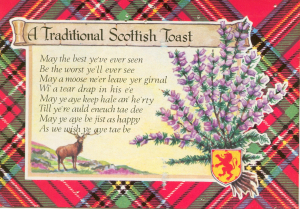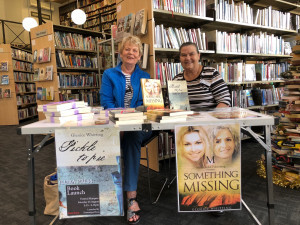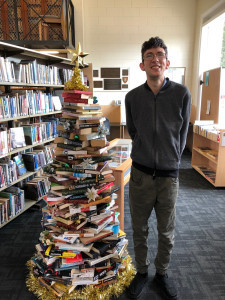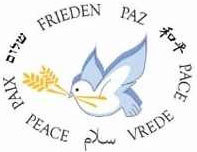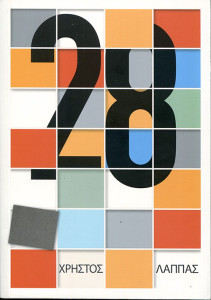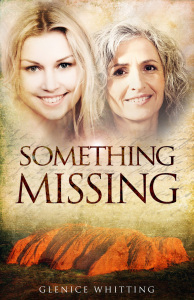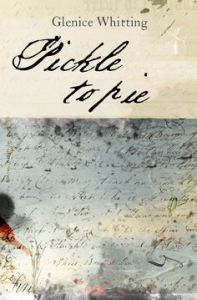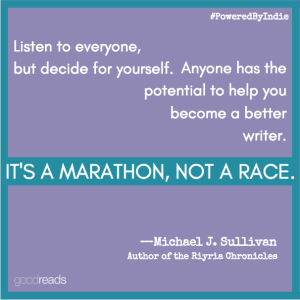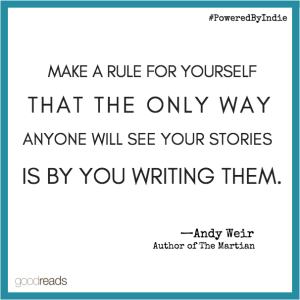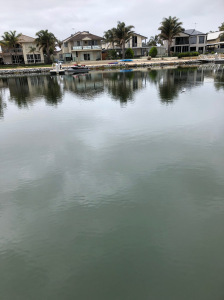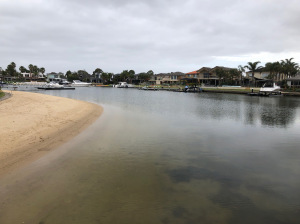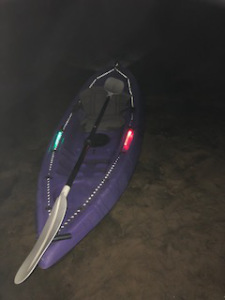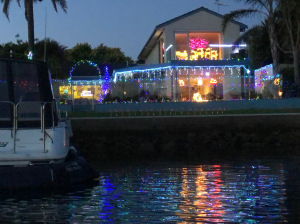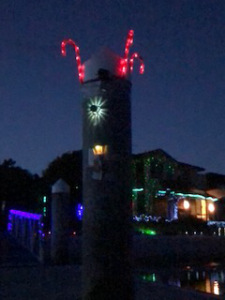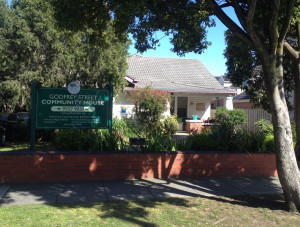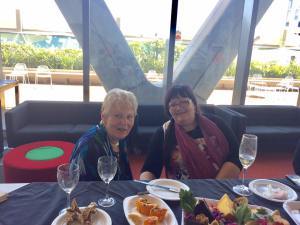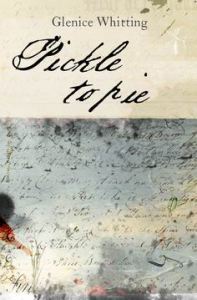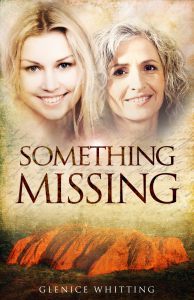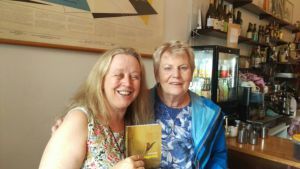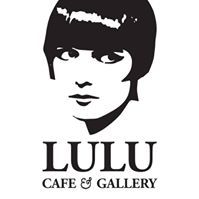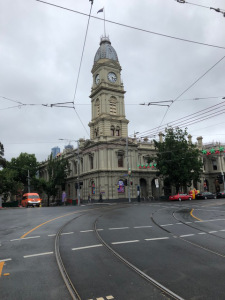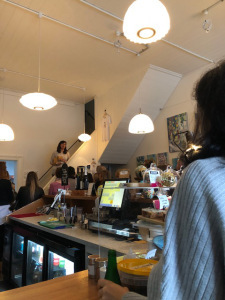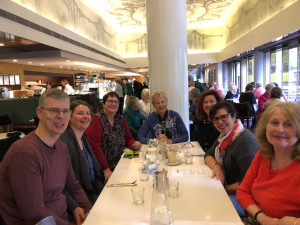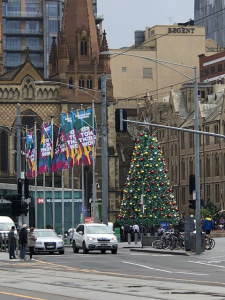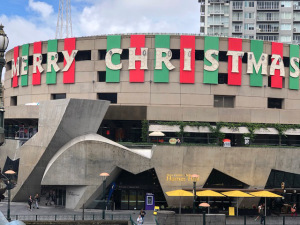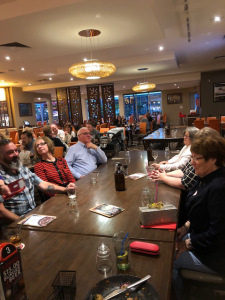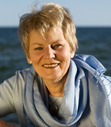Glenice Whitting's Blog, page 3
January 12, 2019
May 2019 Be Kind To You All
Another Christmas and New Year have been and gone. I’m always amazed at how quickly time flies. The lead up to Christmas is hectic, the holiday season is fun and the wind-down enjoyable. But now we have to pick up the threads and get stuck into this brand new year.
I love this old postcard with a traditional Scottish toast wishing everyone well for the coming year. Here it is for friends and family. I wish you all well and every happiness in the year ahead.
It will be a full year of teaching, writing, book launches (others, not mine because I’m still working on my 3rd book ) and attending writing groups, giving workshops on How To Write A Memorable Memoir, and attending conferences etc. The passion is still there.
Marketing is always a problem. There are so many books now available on Amazon and Kindle that my two books, Pickle to Pie and Something Missing are now well down the ladder and I simply don’t know how to breathe new life into them. However, I am eternally grateful for all they have given me and my academic journey means I am alumni to Monash, Melbourne and Swinburne Universities. Fantastic.
However, at this brand new start to this new year my horizons are broader. I am optimistic that as the world gets smaller so our hearts will get larger and we will embrace people different to us and wish them peace
Family is very important to us. Our eldest son and wife left for a snowy Christmas in the USA and Canada and sent photos and texted often. We have the grand-dogs for company while they are away. Our youngest son, wife and two grandchildren drove down from Queensland for a great Christmas get -together. He did all the cooking and we had a lovely time. We played Uno and swam in the canal. The memories will keep me warm during our cold winter months but for now I’m simply enjoying life and taking advantage of every moment of sunshine, warmth and Summer living.
Patterson Lakes comes alive during these warm days. People have barbecues, sit on their deck drinking coffee (or something stronger) and watching the kayaks paddle past on the waterway outside our doors. The birds are a joy to watch as they swoop and play. We see pelicans, sooty terns, swifts, ducks…even the laughing duck and the ever present seagulls squabbling for anything left over. The plover’s call at night lulls us to sleep.
May you all have a wonderful year filled with happiness and joy
October 17, 2018
November Event: Sip and Savour Panel Discussion on Immigration
Sip and Savour Historical Flavour evening with the HNSA (Historical Novel Society Australasia)
Nov 8, 6:30 PM · Mail Exchange Hotel · Melbourne, Victoria, Australia
HNSA Melbourne Chapter presents Glenice Whitting, Lynne Leonhardt & Alli Sinclair in conversation with Robert Gott.
The featured authors will discuss stories of immigration – of migration to Australia and connections to the old country.
Central to memories of the old country is feasting – sharing of food and drink evocative of the old country. In that vein, the panel discussion will be accompanied by beverage pairings – from Australia, Germany and Italy.
Tickets ($25.00) can be purchased from Trybooking: https://www.trybooking.com/VRJZ
Ticket price includes wine/beverage sample and cocktail supper. Venue: Mail Exchange Hotel: Function Rooms 688 Bourke St, Melbourne. (corner of Bourke Street and Spencer Street, opposite Southern Cross Station). Enter via the Bourke Street entrance, down the escalators, through the Bistro. Function rooms face onto Bourke Street.
Come and join us and chat with other writers at this event.
I’m taking the train to Southern Cross Station so I can enjoy tasting the wines from such different countries
Bios
Glenice Whitting is an Australian author and playwright and has published two novels. She was a hairdresser for many years before she became a mature age student and was awarded entry into the Golden Key International Honour Society for academic excellence. Her Australian/German novel, Pickle to Pie, was short -listed for the Victorian Premier’s Literary Award for an Unpublished Manuscript. It co-won the Ilura Press International Fiction Quest and was launched during The Age Melbourne Writers’ Festival. The old German scripture cake recipe is in the back of Pickle to Pie
Lynne Leonhardt grew up on an orchard in Donnybrook, Western Australia. As a young adult, she worked in London and travelled extensively. She studied music and English literature at the University of Western Australia while bringing up four children, and later completed a PhD in Creative Writing at Edith Cowan University. Her first novel, Finding Jasper (Margaret River Press, 2012) was longlisted for the 2013 Dobbie Award. Her second novel, is scheduled for publication early 2019 .
Alli Sinclair is Australian born but spent her early adult years travelling the globe: scaling mountains in Nepal, Argentina, and Peru, rafting the Ganges, and riding a camel in the Sahara. Alli’s books explore history, culture, love and grief, and relationships between family, friends and lovers. She captures the romance and thrill of discovering old and new worlds, and loves taking readers on a journey of discovery. Alli now lives in Geelong, Victoria.
Robert Gott was born in the small Queensland town of Maryborough in 1957, and lives in Melbourne. He has published many books for children, and is also the creator of the newspaper cartoon The Adventures of Naked Man. He is also the author of the William Power series of crime-caper novels set in 1940s Australia: Good Murder, A Thing of Blood, and Amongst the Dead.
About HNSA
HNSA Melbourne Chapter is a local chapter of the Historical Novel Society Australasia (HNSA).
The Melbourne chapter meets for monthly lunches and supports an annual panel event series. HNSA Facebook page: https://www.facebook.com/groups/HNSAu... HNSA Melbourne Chapter Facebook page: https://www.facebook.com/groups/24277...
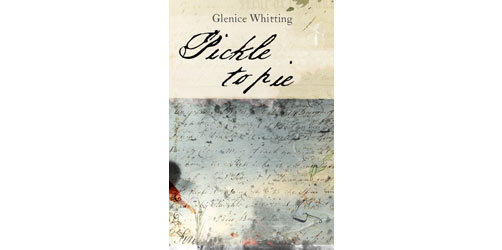
September 3, 2018
28: A Memorable Novel by Christopher Lappas
A good book entertains. A great book makes you thinks about life and all its complexities. 28 by Christopher Lappas is a great book.
I took this book into hospital and read it after my knee replacement. I found myself totally involved with the characters.
It’s not an easy book to read, however, you become totally involved with the different relationships between 28, Scribe, his son, Andre and Scribe’s ex wife. However, I became so involved that time past quickly. Reading 28 meant that I wasn’t worrying about anything. I had lost myself in the story.
As the story progressed, very little was as it first seemed and I found myself asking challenging questions as Scribe and 28 both struggle with demons in their past. I questioning again and again all the uncertainty of life and living, of destiny, motivation, and consequence.
The principle setting for the novel is in a hospital. The narrator is given the name Scribe by 28. She is a woman with a number for a name and their first meeting leaves him in confusion and disillusioned.
28 is the central character and Scribe is drawn into her stories (are they about herself or someone else). She is an enigma to herself, to Scribe and to the reader. We want to know more about her. Why is she in a room on the lowest level of the hospital and Andre is lying in a coma in a higher room? Why is Scribe so fascinated by her stories? This book is definitely a multilayered work of art.
I was fascinated by the reoccurring theme of 28. It is everywhere in and around the book. The title, the number of chapters, the floors of the building, beads, almonds and 28 herself. Is it a coincidence that Ilura Press have the paperback selling for $28?
On the publishers website www.ilurapress.com, Christopher Lappas talks about the process of writing this book. I found his comments relevant and insightful.
This courageous, and memorable novel entertains with a story of relationships and allows us to experience the characters personal growth and their final belief in themselves. I was left with a sense that 28’s life goes on past the last chapter . I found the end both surprising and elegantly clever.
I can’t wait to read Christopher Lappas’ next book and hopefully I will not be in hospital but home to enjoy it to the full.
2017: 28 by Christopher Lappas ilura Press,
ISBN: 9781 9213 25304
Aus$28.00
August 14, 2018
And The Winner Is…
Helen Luxton has won a copy of Something Missing and Pickle to Pie. Her name was drawn after my workshop last week on Life/Memoir Writing at the Hastings Library.
Over twenty writers attended, all with fascinating projects. On a table, near the books for sale, was a list. It stated that if you subscribe to my website www.glenicewhitting.com you had a chance of winning a copy of my latest novel, Something Missing. I felt that a copy of Pickle to Pie would also be helpful to Helen.
Life Writing
Life writing is considered an all-encompassing term. This genre involves the recording of personal memories and experiences. Life writing includes not just biography and autobiography but also Memoir
Autobiography is ‘I’ writing (writing the self)_It is ‘mystory‘
Memoir (from the Latin, meaning memory) is a subclass of autobiography. It is an autobiographical account of someone’s life. However, the focus is on the events a person remembers rather than the self. (The writer remembers passages of dialogue from the past)_it is ‘ourstory’
Biography is writing her/his story_it is ‘theirstory‘.
Below is an outline about what we managed to cover in a brief time.
Life Writing/Memoir Workshop 31/7/2018
Hastings library
Every family has fascinating stories and even secrets. The stories of ordinary family life must be told. Finding the best way to tell these stories can be a fascinating journey and the chance to create a valuable resource for your descendants. However we all want to write an account that is memorable, engaging and not boring.
What about the family’s murky secrets? Don’t shy away from these stories. They can be healing to you and helpful to the reader as they provide the opportunity of insights: such as a marriage taking its last breaths, the death of a child etc
How can we do justice to intriguing ancestors?
Should my story turn into fiction? How much dramatising is acceptable?
Who is my reader? What kind of publication is appropriate?
Self publishing where I pay for everything myself?
Self publishing: using Busybird or Lou Lou. (you still pay)
Small press publisher. They pay, but what about Marketing?
Traditional Big Publisher: such a Pan McMillan etc. Pitch it to them on Fridays and Mondays.
Do I need a professional editor? —Yes, Yes, Yes:
I had an American editor to check for any mistakes for the American section of Something Missing. She said a campervan was called a pullalong camper. An English editor provided by MadeGlobal Publishing asked What is a Doona? I changed it to continental quilt.
Structure: Make a W.A.I.N (Where Am I Now? —
Write the first draft without any thought. Knock that writing citic off your shoulder: lose control. Forget about grammar, spelling and being nice and polite.
Take Risks
Free writing: Don’t stop writing for at least 15 mins. Write anything that comes into your head. Get messy, and leave it for the adult writer to clean up later when revising your book.
Join a Writer’s Group & the Victorian Writers in the Wheelers Centre in Melbourne
Read everything you can lay your hands on. Hazel Edward’s has written a very good book titled ‘Non Boring’ Family History’. This is a practical guide for those wanting to shape their family research into a readable family history.
Happy Writing and have FUN
June 18, 2018
A Knee Replacement and Procrastination
So you book yourself in for a total knee replacement. How wonderful to be able to say. ‘I’ll have a 70,000 k service and a new shock absorber, thanks.’
Because I’ve already had a 50,000 k service and a new front suspension (two hips) with a new knee I guess I’ve earnt the title of Robo Mum. At least I won’t limp and have that dreadful nagging pain once the offending knee joint has been replaced. Nothing could go wrong. Right?
I love the quote by Robbie Burns,
The best laid plans of mice and men oft times goes astray
All went well. The surgeon and anesthetist did a fabulous job, I was sent to rehabilitation as planned, staples were removed and after intensive physio I was discharged. My son took the day off to bring me home.
One week later I went to my local GP to take off the last plastic cover. To my shock he said he couldn’t do it because the knee was obviously infected. It had been hot and tight but I’d put it down to the knitting, healing process.
I hurriedly saw my surgeon who found that a staple had been left in. He removed it. But…I am a very allergy prone person who is allergic to sulfur, penicillin and, as we now know, most antibiotics. From then on it was weeks of nausea and vomiting, trying one antibiotic after the other. I couldn’t keep any food down and was living on oranges and lemonade. At least it is one way to lose weight…although I wouldn’t recommend it as a way to lose six kilos
Carol-Anne Croker kept me supplied with a freezer full of nourishing soups and yummy treats until the last antibiotic, plus a daily dose of youcault and yogurt is actually working. How wonderful to feel you are finally on the way up instead of down. I can’t wait to resume my life again. Many thanks must go to so many wonderful friends who supported, encouraged and sustained me during this difficult time
But what about writing that third book? It ground to a halt with all this going on and I just don’t seem to be able to pick up the threads again. It will happen. The passion is still there but I am definitely procrastinating. And it’s not the first time.
April 8, 2018
How to ‘show not tell’
SHOW DON’T TELL
Don’t write that the moon is shining.
Show the glint of light on broken glass. Anton Chekhov
Rather than tell the reader that a character is angry, sad, upset or grieving, SHOW IT.
Alice Pung in Unpolished Gem shows she is ashamed of her parents by writing that she insisted they drop her off a block away from her school.
Elizabeth Jolly in Miss Peabody’s Inheritance shows that Miss Thorn is angry. ‘She wanted to rip off both Edgley’s legs and twist her silly head off.
To SHOW don’t TELL applies particularly when writing a setting. Often what makes us really remember a book it is the picture the author paints of places in the story.
Think of the sunbaked, salty picture Tim Winton has given us of coastal Western Australia. An Open Swimmer (1982) Shallows (1984) That Eye, The Sky (1986) In the Winter Dark (1988) Cloudstreet (1991) The Riders (1994) Blueback (1998) Dirt Music (2001) Breath (2008) Lockie Leonard (1990-1997) Eyrie (2013
Or Emily Bronte’s foggy and dank evocation of the Moors in Wuthering Heights. Or narrow fetid back lanes of Ruth Park’s trilogy (The Harp in the South Trilogy/Penguin Books.) about depression-era inner-city Sydney and you can almost smell the ripe and rotting tropical humidity of Arundati Roy’s God of Small Things. The very mention of these titles conjures up the places they are set.
Here’s a favourite: The beginning of Michael Ondaatje’s Running In The Family set in tropical Asia.
Drought since December.
All across the city men roll carts with ice clothed in sawdust. Later on, during a fever, the drought still continuing, his nightmare is that the thorn trees in the garden send their hard roots underground towards the house climbing through windows so they can drink sweat off his body, steal the saliva off his tongue. He snaps on the electricity just before daybreak. For twenty-five years he has not lived in this country, though up to the age of eleven he slept in rooms like this—with no curtains, just delicate bars across the windows so no one could break in. And the floors of red cement polished smooth, cool against his feet. Dawn through a garden. Clarity leaves, fruit, the dark yellow of the King Coconut. This delicate light is allowed only a brief moment of the day. In ten minutes the garden will light in a blaze of heat, frantic with noise and butterflies.
There are so many images in these paragraphs which evoke the languid heat of tropical Asia and Ondaatje uses all the senses to bring them to life. The sight of men pushing carts of ice, barred windows, the cool feel of the red polished cement. The smell of the humid heat.
This is good writing. It appears effortless, but each detail helps transport us. We can see and feel and smell the Ceylon of Ondaatje’s childhood.
Exercise: Write about something very familiar—a very familiar house, school room, or workplace . Take your reader there, create a picture, draw it in words so your reader can see it, smell it, feel it.
If I am writing a fiction project and want to write about the house in my story I visualise it first. I Allow my mind’s eye to walk through the house. I start outside, approach up the front path, climb the steps, go through the front door, down the hall, from room to room. And I ask questions. What happened in each room? Who lived in each room? I try to find a telling image about the people in the house and the relationships between them. This can help the reader gain a sense of the house.
One of my favourite memories is when, every night after dinner, Dad went to the bush-house to water his orchids. He told everyone that he had given up smoking, but acrid cigarette smoke shrouded delicate blooms and a multitude of butts were embedded in the tanbark floor.
The idea is to make the house come alive for the reader. Think of the five senses—sight, smell, touch, hearing, taste. Think hard not only about how the house looked. Did it have a distinctive smell, or odd sounds? What did it feel like? Embossed wallpaper? Polished floorboards? Carpets? Laminex or wooden bench tops? Was it new and modern or old and musty?
There is no need for long passages of description, what tends to work better are pithy images of sensual information.
Examples: Cicadas buzzing in the big trees down by the park. Someone hammering, intermittent bored hammering. Sweat on her lip. Steamy air. Sun after rain. A fly buzzing, bashing into the windowpane. Palm fronds rustling. Sunlight patterns on the curtain, shifting with the light breeze. A mouse scrabbles in the wall. A car drones by
The point is to evoke in the reader a sense of a place that means a lot to you.
I may or may not end up using the writing in a finished piece. That doesn’t matter. The pay-off is that I will find that greater setting detail will find its way into all my writing, even my freewrites (when for 15 minutes I put pen to paper and write whatever comes to mind) and my ‘writer’s eye’ will become more attuned to things around me.
Remember: Freewriting is where you discover the unexpected, hidden parts of your story.
Rewriting is where you fix up the glitches and lumpy bits
January 9, 2018
2018 on the Canals
It is January 2018 and life is slowly coming back to a more normal pace after the excitement of a hectic 2017 Christmas and the New Year
Christmas on the canals can be chaotic. Most houses decorate with laser showers, flashing trees, reindeer and motifs, plus inflatable giant Father Christmases. The reflections in the water add to the display.
Every year, before Christmas, after dark we have a steady stream of boats of all shapes and sizes, all crowded, some decorated with lights, others unlit, filing past to view the reflected lights. We refer to it as the evacuation of Dunkirk. This year, to add to the confusion, we had unlit jet-skis darting in and out amongst the pleasure craft. I had my fingers crossed that all the children were wearing life jackets.
I love sitting in the dark on the deck, coffee cup in hand, watching luxurious pleasure craft complete with gorgeous girls sipping champagne and older nautical men juggle for position with overloaded wooden runabouts packed with Mums, kids and beer drinking Dads. I hope for the best as I watch in disbelief at the risks people take in the name of ‘entertainment’.
I decided to wait until now to go take my kayak to see the lights reflected in the water. I added flashing port and starboard lights, an LED back light and donned my bright yellow reflective jacket before paddling out onto the canal. There was not a boat in sight and I reveled in the peace of being out on the water, listening to the gentle breeze rustling the palms. A cormorant watched me quietly coast past before diving for his supper. Circles appeared on the water’s surface. At first I thought they were made by bugs but when I floated gently past I realized they were made by fish coming to the surface to feed.
I had the canals to myself and delighted in drifting , paddling and admiring the fabulous decorations. I know how long it takes us, with Paul and Marian’s help, to decorate our home. Paddling past many unlit jetties, especially when the moon hid behind the clouds I realized why Paul had insisted on taping four canes to the end of our jetty . The unlit jetties were difficult to see in the shadows and loomed dark and menacing.
The grand-dogs Ambar & Tashi, on holidays with us, greeted me on my arrival, but it was with regret that I dragged my kayak up the beach and onto the lawn.
Over the summer months I will definitely go again. I know there won’t be any decorations and the houses will have returned to normal but…Oh! …the serenity.
And next time I’ll put my port and starboard lights further up so I won’t keep hitting them with my paddle.
December 31, 2017
Happy 2018
I love starting a fresh, clean New Year. I always have a brand new completely empty notebook ready to add my hopes, dreams and New Year resolutions.
This year I’m going to exercise more, eat less, watch my weight doesn’t get out of control and finish that third book. Fingers crossed etc etc.
Looking back at last year’s journal I find that what I’ve written is a more realistic jotting down of what actually happens. It can be nothing like what I’d hoped and dreamed but on the first day of this amazing brand new year I am totally optimistic and everything seems possible.
I’m teaching Memoir Writing again this year and will thoroughly enjoy being with a group focused on writing their stories.
I’d like to thank everyone that has touched my life in a positive way last year for all your kindness and support. You mean the world to me.
May 2018 be filled with happiness, good health, good will and love for you and your loved ones
December 22, 2017
Christmas means Magical Moments
Christmas is a magical time of catching up with family and friends.

Another Magical moment was our last meeting of the Memoir Writing Group at Godfrey Street Community House. Most of us are writing life stories but some are using the Memoir genre to tell their tales. I’m delighted to say that we have bonded into a group that welcomes others and give excellent feedback on the writing in progress. Most of us continue our stories during our 15 mins splurge (or stream of consciousness writing). I can’t wait to start 2018 but we all have a list of inspirational quotes and exercises to keep us writing over the holidays.
Last but not least was the Swinburne University Alumni Christmas afternoon tea. Beautifully presented with a Charleston Theme glitz and glitter. I had a great time catching up with Wendy and Peter Dunn, Breda and Alfred. We sat around a small table decorated with tall feathers and were waited on hand and foot. The afternoon tea was superb consisting of ribbon sandwiches, beautiful cheeses and tiny fancy cakes plus an unlimited supply of wine, soft drink, tea and coffee.
May your Christmas be filled with happiness, peace and love.
December 8, 2017
Magical Moments: Part One
It was a Magical Moment when I heard that Pickle to Pie is being republishing by Ilura Press on Amazon.com and they will have it as a print on demand book. It will be available in this form from their website and at bookdepository.com
My second book Something Missing is available at Fishpond.com.au with free delivery
It was indeed a Magical Moment when Chloe Trindall from the Godfrey street Memoir Writing Group had a short story published in the Women Who Write Melbourne anthology A New Beginning
Women Who Write, Melbourne is a supportive networking group for Melbourne women writers. They are open to writers of all ages, levels of experience and all genres.
The Facebook page is for members to engage with one another, keep up to date with what’s happening in the group and the writing community.
Every month they hold meetings in the Melbourne CBD and post details on their Facebook page as well as any additional events they organise.
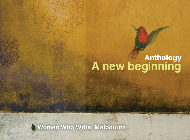

I loved reading the excellent short stories by very talented authors. There is something for everyone in this anthology
The day of the book launch was portrayed as having the worst, most violent weather ever imagined and as I donned my ski jacket and armed myself with a scarf and brolly I wondered if I was crazy to catch the train and tram to Lu Lu’s cafe and gallery in North Melbourne for this book launch. But I was determined to go come hell or high water.
We had a wonderful time listening to extracts of prose and poetry. Unfortunately, because of the weather we all had to cram into the cafe section instead of being outside in one of the best courtyards in Melbourne
Why don’t you join this amazing group of writers on Facebook?
Twitter/Instagram @womenwritemelb
On Sunday it was the Christmas gathering of the Hysterical Melbourne Historical Writers
We met at the Vic restaurant under the spire of the Arts Centre. It was great to be able to swap stories and publishing experiences. Many thanks must go to Celia for organising these get-togethers.
Walking over the bridge near the Hamer Hall I was delighted to see the Christmas Tree in Federation Square.
Hamer Hall was also decorated in festive attire.
Godfrey Street Community House also had a Christmas get-together to thank Carol for years of tireless service. We will miss her so much but know it is time for her to be able to do the many things she wants to do. Many thanks Carol for all your kindness and support
Christmas is always a busy time spent catching up with family and friends and I love every minute of this silly season.

